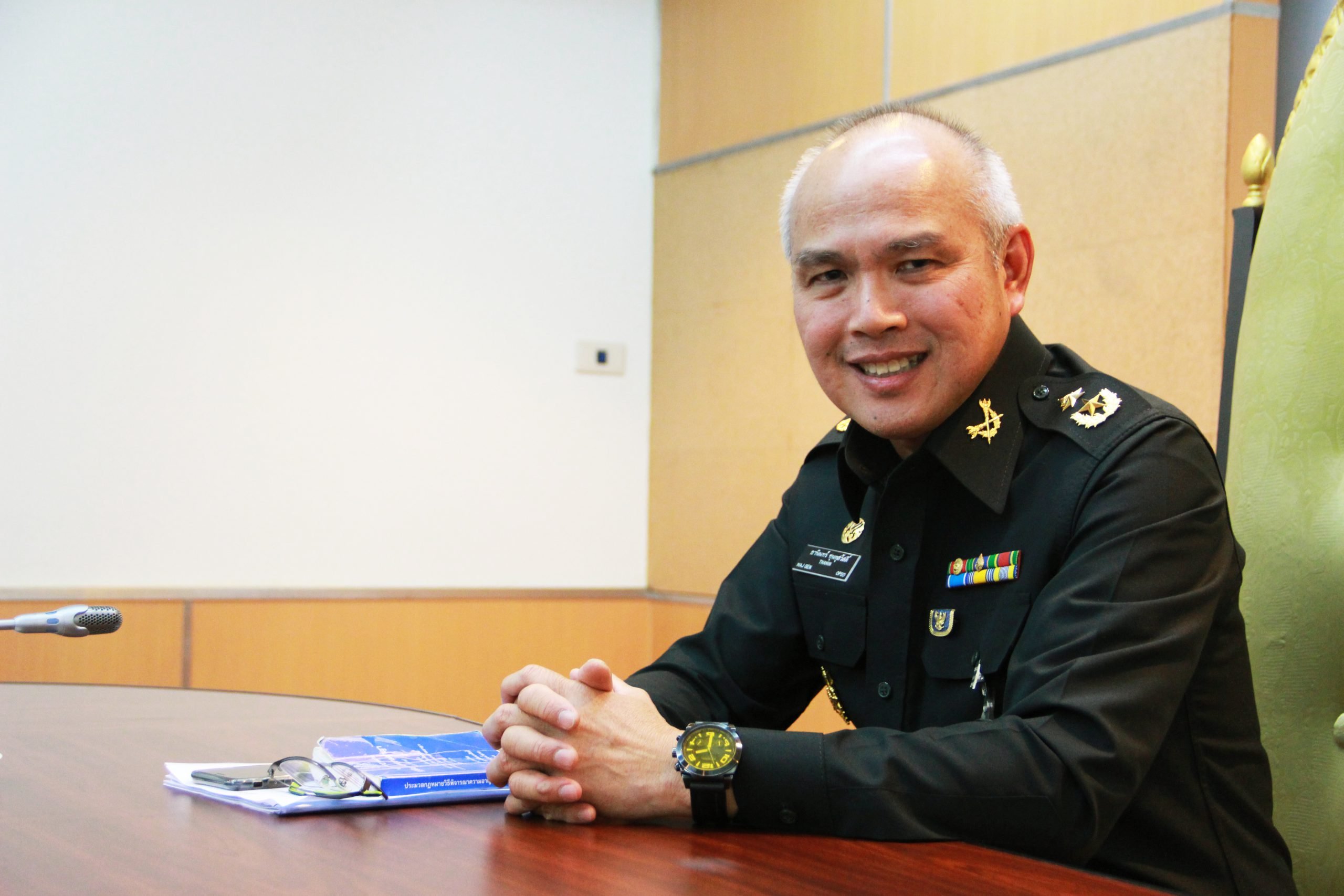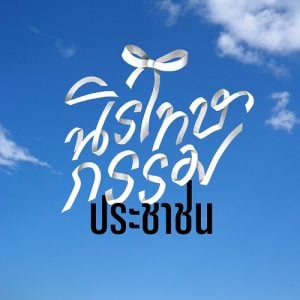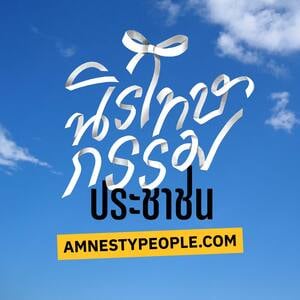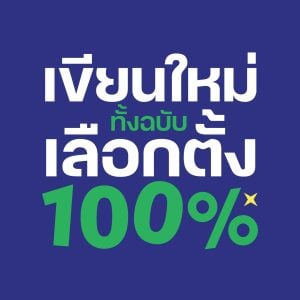
It has been a long time since the society last discussed about the military court. We might feel it is not concerned to us. Or we simply believe that the military court, suspended by the Head of NCPO and his Article 44, was the end of the military jurisdiction. But the fact is that there are many civilians being tried and their lives are hung by the military justice procedure.
After the Coup, it seemed that the military court was an important tool used for maintaining peace and order, as well as suppressing the oppositions. It is rarely that we hear from the one who has always been criticized for questions such as, what the military court’s structure is and how it works, or why the military court tries civilians. Though it is not easy to get this information, but we finally have Maj. Gen. Thanin Thuntusawad, Senior Judge at Supreme Military Court, to answer what people still have doubts regarding the military court and civilians.
Q: What is the role of the Department of Judge Advocate in the Army?
A: The Department of Judge Advocate is an office within the Office of the Permanent Secretary for Defence. The Office of the Permanent Secretary reports to the Ministry of Defence. Therefore the Department of Judge Advocate is an official division, and is direct to the Ministry of Defence. This has been stated in the Royal Decree of the Ministry of Defence.
The Department of Judge Advocate has 2 roles. One is legal work; giving legal opinions, making final decisions, drafting and proposing bills. This is like any other civil service divisions. Another role is to administer military legal process. This part is separated from the civillian court of justice.
Frankly speaking, the Department of Judge Advocate trains all judge advocates. When you see military officers attending courtrooms where military personnel being tried, these officers have all been trained by the Department of Judge Advocate. The officers will be posted to different offices. They will be reshuffled in order to advance their career as usual prctice of government officer.
Q: How can one become a judge advocate?
A: It depends on each branch whether they will recruit. It is based on their budget and personnel management. If the Army is ready, they will set their own exams. But practically, if the Army wants to set exams, they will ask the Department of Judge Advocate to process, and will always ask for our consent.
Q: And those who want to be a judge or a prosecutor of the military court?
A: To be a judge, although the Military Court Act, which is the foundation law, states that the court of first instance judge must hold at least the rank of an Army Captain, a naval Lieutenant or a Flight Lieutenant, but upon the appointment the military judge must hold at least the rank of a Lieutenant Colonel, which is a very senior rank. These officers have experienced and served since they were Army Cadet Officers. They will be sent to be trained as Judge Advocate. They will learn custom, thinking system, administration, and military chain of command until they are experienced. Then they will be appointed as a judge. Whether they succeed, they must go through a tough trainings.
Q: What are these trainings?
A: The Department of Judge Advocate runs the Judge Advocate General’s School. After an officer passes the exam and becomes a Judge Advocate, they must first enroll in a basic commissioned officers course. This course takes 6 months, which is the longest period to complete. Officers who passed the exams will be sent to other divisions. Knowledge gained from a Bachelor of Laws or legal knowledge from civillian shools are insufficient to perform their duties. They need to learn military laws that are a lot. They also need to learn the manners and customs of the military. Once return to their original post, they will have to study when they hold the ranks of a Major or a Lieutenant Colonel. They study a higher commissioned officers course. They have to discuss with their teachers and colleagues on what they have learned and experienced. They have to conduct a thesis-like research that is considered as “a bitter pill to swallow”. These 2 courses are compulsory according to the service. Those who fail will not be able to advance their career. The courses emphasize general military laws.
Other than these 2 courses, there is a practical course. These is no theories for this one. It is an integrated curriculum where they will learn by doing. The course lasts 4 and a half months. For example, a judicial training requires them to learn how to write proceedings and judgments. They will also learn how to appear on the bench and perform court proceedings. Those who want to be a military prosecutor must have taken a specific training too, then sit for an exam. Their exam is unlike a bar exam. They don’t ask with mode case studies but ask what will you do if you are the judges, then write in the essay exam.
The officers learn from real examples. In the morning they take classes. Let’s say today lesson is expert witness testimony who is a police officer from the Central Police Forensic Science Division. Then that morning will study on forensic science. There will be a workshop in the afternoon. If it is for a military prosecutor, they will learn about attesting and how to ask questions. A judge will learn about proceedings.
Q: These are really tough trainings. As of now how many military prosecutors and judges are there?
We don’t have that many. There are more cases than actual human resource. For instance there are 134 military prosecutors. 38 are posted at Bangkok Military Court, and 96 are at Military Circles in the provinces. But there are still vacancies. There are 70 military judges, all positions filled. All judges are under the Department of Judge Advocate in the center. They will be assigned and sent to perform duties when required. This is for judicial independence and being autonomous from the other influences.
Q: You mentioned that there are too many cases and fewer judges. Have you been complained about the slow process?
A: There’re many factors. First, it’s just a handful of us, but too many cases. Prior to NCPO order cases, we already had reached our maximum capacity. Then came civilian cases. But our manpower remained the same. So workflow delayed because of this structure. Secondly, the slowness in the system itself. I must admit that we’re different from civilian courts, which applys the countinuous withness hearings. But when we schedule for witness examinations, we manage this inconsistently, as we call “broken patches” schedules.
You must understand that each of our judges from the Department are sent from the center and have to responsible the whole procedure of each cases assigned to them. But the judges are assigned to manyt cases. We call them “touring judges”. So it’s very difficult to schedule for hearings with continuity. We try to process as fast as we can. The dates scheduled can’t be changed.
When there’s a case, we’re ready to proceed. Those cases that don’t require witness examinations can be closed right away. If the defendant pleaded guilty with a requirement to have witness examination in addition to their confession, we can close the case quickly too. Those that take longer are the ones that both parties defend each other. They both have evidences to prove.
The plaintiffs usually don’t have issues. Because the military prosecutor is based there. The problems are from the defendants’ lawyers. As I mentioned, the slow process occurs not only from the judges. Once scheduled, the lawyers often say that they have other case schedules to attend to. And we can’t do anything about that.
Q: What are your solutions? Hire more personnel?
A: First you must understand that the Department of Judge Advocate is within the Ministry of Defence. Unlike the Court of Justice or the Administrative Court, the decision is made by the Ministry, not by the Department. But we don’t sit around and no nothing. We keep trying to propose.
Q: Does it affect your decision when people criticize and international communities put pressure on?
A: I think personally that they give a positive criticism, which is good. Lots of things they said, we listened to that. We haven’t said that we’re always right. It’s because we impose military procedure on civilians, and this’s not relevant. But sometimes people misunderstood, and they talked with false. The military court has no duty to respond. When there’s an opportunity, we’ll participate and explain. When the National Human Rights Commission held a forum, I went there to clarify issues. Or even the media, if my commander give a green light, I’ll go and explain to them too.
Q: Has the use of military court bettered social situations?
A: In fact, you can’t ask me this question! You should ask those who are responsible for the National Security. The military court is a judicial administration. As of now the military court has a prominent role, but I can’t say whether that has solved social unrest. We’re only responsible for a judicial administration. We really can’t tell if the situation has improved or not.
Q: So what’s the purpose of civilians being tried by the military court?
A: This happened long time ago. There’s a statute just only for a coup stated in the Military Court Act that allows the person in charge to declare martial law can also
order any cases to be tried by the military court. The statue also empowers the person who declares martial law to order the court of justice to perform the military court’s duties. In another word, the civilian judges to become military court judges.
Under the NCPO government, this’s probably the first time that civilians are really tried by military court. But except communists-related cases, we don’t have court of justice judges performed military court duties. However civilians tried by court of justice judges who performed military court duties, and civilians tried by military court, both have no difference. The court of justice judges only think like civilians do. The military judges can’t have a double standard. Whatever we have treated military personnels, we apply the same procedure. For example for firearms cases, the military court is aware of that soldiers and firearms are always together. There’re chances of them making mistakes. So the penalty is not so serious. But the punishment for unauthorized wearing of military uniforms is severe. Because we know how serious we are about the honor of our uniforms. A narcotics charges also carries severe punishments. Soldiers can’t be addicts. So the civilian courts have different system. But at the end we obey the supreme court judgment. We don’t go far out of the line.
Q: People say that human rights priniciples are difficult to raise at the military court. What do you say?
A: Let’s put it this way. Do judges follow the laws? NCPO’s Announcements that issued by the head of state, are they laws? Whatever the Announcements say, we only follow orders. If one has been issued a summons, and they don’t report. Then they just violate the law. So the legal process begins with the inquiry official, then the prosecutor decides whether to file a lawsuit, finally the lawsuit comes to us. For the human rights violations, we must clearly point out what issues are being violated. Once the judge acknowledges the exact violation, the judge can look at the relevant laws. So the judges don’t violate human rights, we strictly obey the laws.
Q: Isn’t the right to freedom of peaceful assembly and association stated in the Universal Declaration of Human Rights?
A: Political demonstrations can be held under the law, for example being if peaceful and had no weapons. After the coup, a NCPO’s Announcement prohibits any gathering of more than 5 people. If they exceeded this number, they committed a crime. Today if they were tried, which court do they go to? It’s the court of justice. Why don’t you say that the court of justice violated human rights too? They just follow laws. Even the court of justice can’t do something else. They must follow the laws.
When the soverign power issues a law, courts can only follow. Neither military court nor the court of justice can tell the head of NCPO that this violates human rights. That’s not a court’s duty. It’s not certain whether there’s a violation or not. Whatever the laws are stated, we must follow.
If the law’s not good, then change it. Once changed, judges will follow the law.
Q: For some cases, the accusation is very insignificant, but the charges is a threat to national security. The case of 8 Facebook page admins who mocked Gen. Prayut, how did the military court see it?
A: I don’t know what you just said. But the judges looked at the evidence only. If the inquiry official propose as a charge under Section 116 (inciting unrest to cause disturbance) case, and the prosecutor agreed that the evidence supported the accusation. If they think they’ve done nothing wrong, they must have evidence to defend themselves. If the evidence was sound, then the judge would dismiss the case.
Q: Defending a lawsuit can bring atmosphere of fear. People are afraid to express.
A: The military court is not a part in bringing fear. There are steps before a case handed over to the military court. When there’s a file that has elements of crime, the judges must proceed. The military court does not create social conflicts or anything. We only follow orders.
Q: Now that the military court discontinued prosecution of civilians. Why don’t they transfer all pending cases to the civilian court?
A: I can’t talk too much. It’s not good. I’m a government officer. You have to ask the head of the NCPO. He is the laws and orders, and I only follow orders. If we don’t, we’ll all be charged with Section 157 (officials who wrongfully exercises or does not exercise any of his functions). If you think there’s a problem, you have to fix at the source of the problem.



















